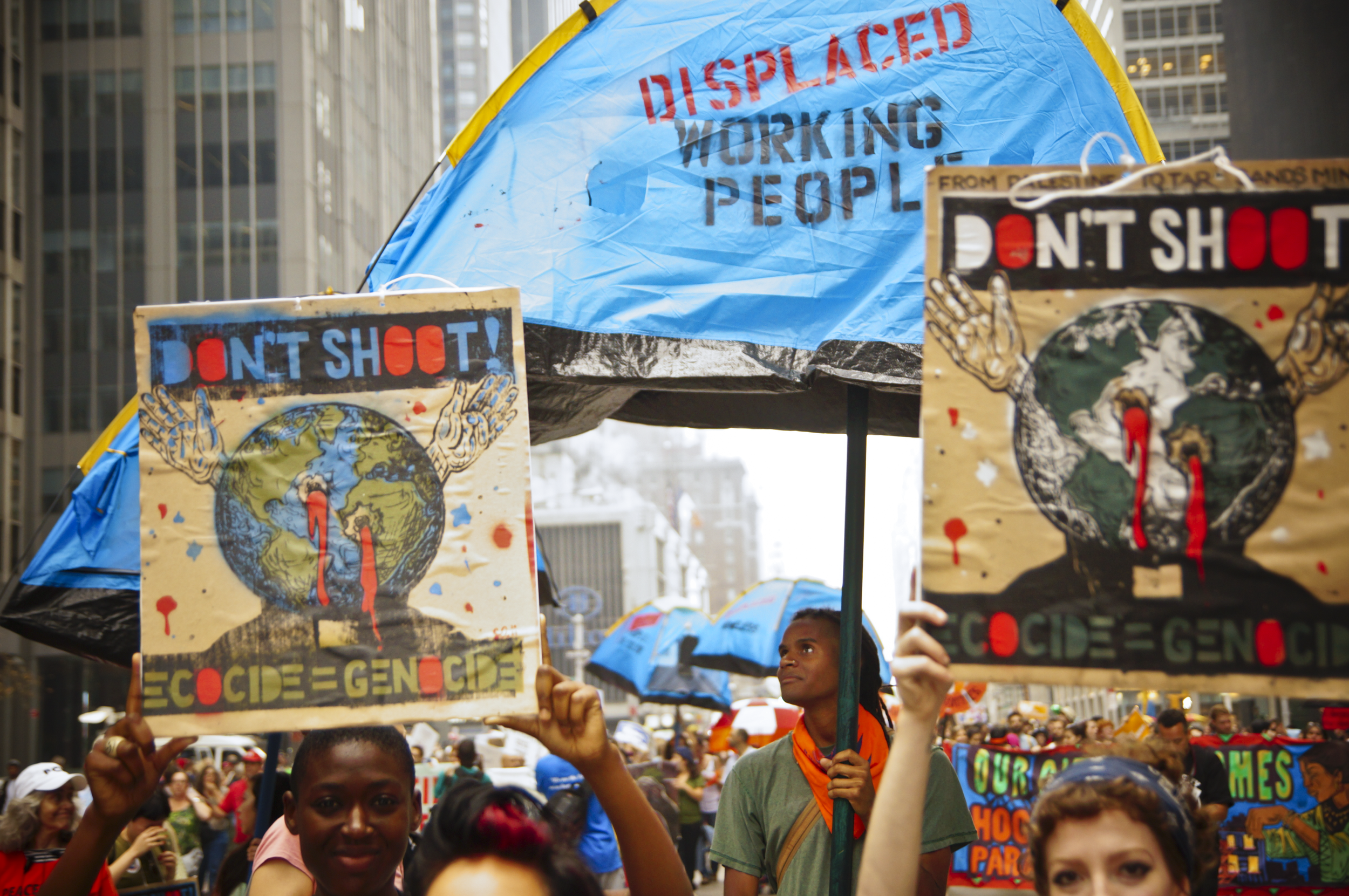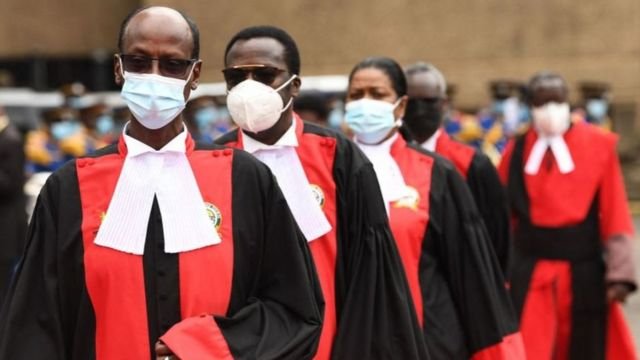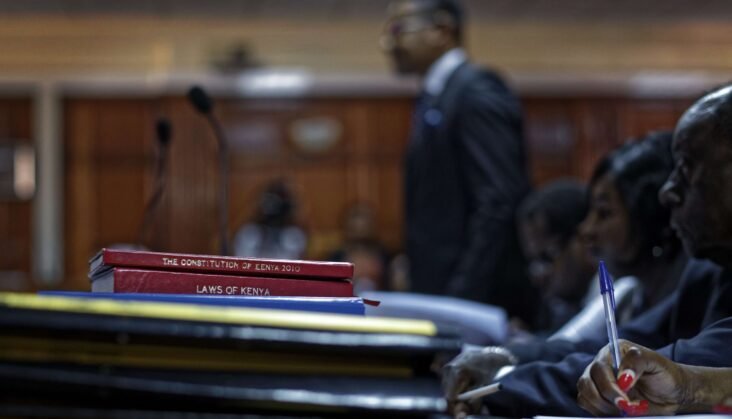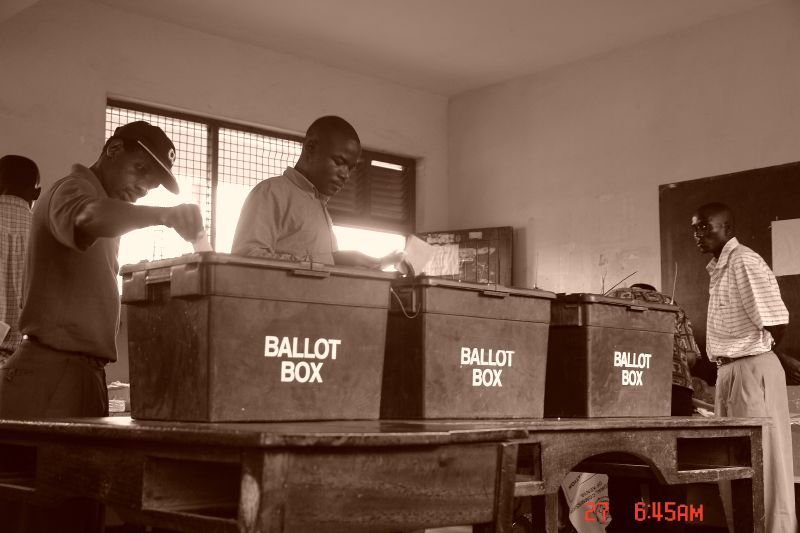
Our Blog
Categories
- Africa
- African Union
- Central Africa
- Citizenship laws
- Competion Law
- Constitutional Court
- Constitutional Law
- Constitutional law
- Disability Rights
- Disability rights
- East Africa
- Environmental Law
- Gender Equality
- Governance
- Human Rights
- Immigration Laws
- International Law
- Kenya
- Labour Law
- Mining Law
- Nigeria
- North Africa
- Political Rights
- Public International Law
- Public Law
- Right to Vote
- SADC Region
- South Africa
- Southern Africa
- Uganda
- West Africa
- Year end anthology
- Zambia
Why a scope clause in the binding treaty on business and human rights is unnecessary
Ahead of the 10th session of negotiations of the Intergovernmental Working Group on a legally binding instrument to regulate, in international human rights law, the activities of transnational corporations and other business enterprises, David Bilchitz argues that a scope clause is unnecessary and likely to exacerbate divisions.
The Diminishing Returns of Never Again
In this post, Arthur van Coller highlights the critical need to focus on preventing genocide rather than merely responding to its aftermath. He explores key indicators that signal the potential onset of genocidal violence, including acts of incitement and hate speech that may escalate tensions. van Coller also highlights the valuable role of the International Criminal Tribunal for Rwanda in establishing legal precedents for recognising and addressing these warning signs.
Book Feature: Mozambique's Cabo Delgado Conflict: International Humanitarian Law and Regional Security (Marko Svičevič and Martha M. Bradley eds.)
In this post, the ALM team interviewed book editors, Marko Svičevič and Martha M. Bradley to provide an overview of their recent publication which examines one of today's most overlooked conflicts. Through a multidisciplinary lens, the book explores the conflict in Mozambique's Cabo Delgado province, which has claimed thousands of lives and displaced a million people since 2017. It examines the conflict's origins, the responses from regional and international actors, and its broader implications.
Seeking Answers from the World Court: Why it was important for African States to Support Vanuatu’s Draft Resolution
Towards the end of February 2023, Vanuatu and 18 other States formally uploaded the final Draft Resolution requesting an advisory opinion on climate change from the International Court of Justice (ICJ). This draft resolution was officially adopted on the 29th of March. Dr. Tracey Kanhanga explains why it was important for African States to co-sponsor Vanuatu’s Draft Resolution and vote for its adoption as well as the potential impact that the advisory opinion will have in strengthening domestic climate change regulatory frameworks.
A SLAPP in the Face to the Abuse of Court Processes
A “SLAPP” suit is strategic litigation against public participation and has its origin in the United States of America and Canada. Courtney Jones discusses the application of the SLAPP defence in South African law following the Constitutional Court’s judgment in Mineral Sands Resources (Pty) Ltd v Reddell.
Will Asylum-seekers and Refugees in Rwanda be Mistreated?Lessons from Rwandan Law, Policy, and Practice Today
Last year the United Kingdom engaged in talks with Rwanda over the two nations’ migration and economic development partnership ( Rwanda asylum plan ). In this article, Dr. D’orsi gives an overview of Rwanda’s position concerning the UK’s plan to deport some asylum seekers to its country. In addition, he assesses Rwanda’s asylum system to determine how safe it is for asylum seekers.
Solving Environmental Harms through an African Model of Environmental Justice
Africa faces a variety of developmental woes that have resulted in various injustices, including environmental injustice. Stephen Morgan discusses the importance of recognising this injustice and makes a case for a reorientation of what we assume to be our moral responsibility towards the environment using indigenous African values and practices.
A children's rights approach to the climate crisis in Africa
Climate change has created a children’s rights crisis which disproportionately affects children on the African continent. Bryony Fox discusses this issue and argues that it is time for a comprehensive children's rights approach to climate change impacts in Africa.
Constitutionalism in the Era of Private Power and the Fourth Industrial Revolution
In the course of digitalisation, economic and other activities are increasingly internationalising and their challenges can thus be less frequently addressed through state constitutions. Although there is no constitutional framework that would allow private power to be effectively constrained at the international level, Johannes Masing argues that a certain uniting basis of constitutionalism across borders may be found in human rights.
Povertyism is a Major Obstacle to the Eradication of Poverty. It’s Time to Ban it.
United Nations Special Rapporteur, Olivier De Schutter calls for an end to ‘povertyism’ - the discrimination & negative attitudes that bar people in poverty from fully accessing their rights and for states to include socio-economic status as a suspect ground in national anti-discrimination frameworks.
Population Displacement and Genocidal Violence in an Age of Climate Change
Climate change and the related crime of ecocide have increasingly been the focus of academic and public attention. As once stable weather patterns become more unpredictable and previously rare weather events become more common and more extreme, we are belatedly recognizing that the ecological destruction inflicted on the world around us poses a tremendous threat to not just the natural world, but to humanity as well.
Several reflections on the displacement in the Sahel due to climate change
Environmental degradation has become a serious problem in the Sahel, which is disproportionately impacted by climate change, with temperatures rising 1.5 times faster than the global average, and the situation is further aggravated by political instability. It is, therefore, consequential that this entire situation has produced – and is producing – a massive displacement of populations within the region.
Basic Structure and Tiered Amendment Processes: The Kenyan Supreme Court’s BBI Ruling
Gautam Bhatia considers how the Kenyan Supreme Court’s judgment in the BBI matter reflects the complexity of applying the basic structure doctrine in a tiered amendment context, where the amendment process explicitly carves out a high threshold of public participation.
The BBI Judgment: Of Basic Structure Doctrines and Participatory Constitution-making
Dr Silvia Suteu argues that the BBI saga raises important questions about the interplay between unamendability and participatory constitution-making, and considers the relevance of the participatory nature of the adoption of Kenya’s 2010 Constitution vis-à-vis the acceptance or rejection of unamendability in the BBI case.
Public Participation in Kenya: What is it?
Following the decision of the Kenyan Supreme Court in the matter concerning the BBI Bill, Dr Linda Musumba examines the meaning of “public participation” as required by the Kenyan Constitution.
- Africa
- BBI judgment
- Children's rights
- Climate Change
- Constitutional Law
- Constitutional reform
- Democracy
- Election series
- Elections
- Environmental Justice
- Equality
- Human Rights
- International Law
- Judicial independence
- Kenya
- LGBTQ+ Rights
- Migrants
- Migration
- Namibia
- Nigeria
- Political Rights
- Public participation
- Refugee and migration series
- Refugees
- South Africa
- South African Constitution
- Women in Africa
- Women's Month
- Women's rights
- World Congress
Submissions
We welcome unsolicited submissions covering current legal developments in constitutional law, fundamental rights law, public law, international law and related fields.
















